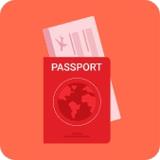

Tourist Law & Ethics for Singapore Visit
Singapore's society is based on the principles of law and ethics. The laws are a combination of local statutes and English common law. Singapore lays a heavy focus on maintaining order and has harsh punishments for violations. Its morals demonstrate respect for social harmony and multiculturalism. Intellectual property, criminal law, and contract law are important areas. To ensure compliance and polite engagement within Singapore's unique cultural setting, it is imperative to comprehend these concepts before visiting.
Local laws and rules in Singapore
Did you know?
• Did you know that using Wi-Fi without authorisation is a serious crime in Singapore? It is against the law to use another person's Wi-Fi without their permission, and doing so can result in fines or even jail time. This demonstrates the nation's dedication to upholding data privacy and cybersecurity.
In Singapore, rigorous laws uphold law and order. Singapore has the following important local laws and regulations:
- Tough drug laws with harsh punishments.
- No importation or sale of chewing gum.
- Serious penalties for jaywalking and littering.
Travel tip: In Singapore, avoid feeding wildlife. It violates the law and is bad for their natural diet. Respecting this regulation protects the neighbourhood environment and guarantees the welfare of the wildlife. - Requiring seatbelt use in automobiles.
- Bans on smoking in public places.
- Consideration for cultural and religious sensitivity.
- Strict penalties for graffiti and vandalism.
Travel tip: Keep in mind that in Singapore, it is against the law to sing in public with vulgar or offensive lyrics. Maintaining cultural awareness and fostering a peaceful environment during your visit are both made possible by abiding by this regulation. - Seniors should be treated with respect.
- Only hand-holding in public shows of affection.
Local culture in Singapore
Did you know?
• Did you know that in Singapore, business card exchanges are done using both hands? This action demonstrates respect and is a crucial component of regional business etiquette.
Chinese, Malay, Indian, and Western influences are all present in a dynamic mixture in Singaporean culture. With hawker centres serving a variety of cuisines, its culinary scene is well-known. Respecting elders and traditions is essential, as is adhering to cultural customs during holidays like Deepavali and the Chinese New Year.
Travel tip: It is considered respectful in Singapore to take off your shoes before entering someone's home. This procedure preserves cleanliness and demonstrates respect for regional culture and customs.
Modern design coexists with traditional sites like Chinatown and Little India in the city's architecture. Singapore's orderly society is seen in its effective public transport, impeccable cleanliness, and strong work ethic. Embracing these cultural facets will improve your trip to this vibrant and peaceful country.
Local ethics in Singapore
Did you know?
• Did you know that Singaporeans frequently avoid using their index finger when pointing? In order to be polite and sensitive to cultural differences, they use an open hand or their thumb to indicate directions.
• Did you know that in Singapore, it is illegal to use a public restroom without flushing? Fines may be imposed for failure to comply.
Respect for various cultures and social peace are important in Singapore. It is considered rude to criticise or dispute in front of others. In conservative areas, refrain from holding hands or other public shows of affection. In mosques and temples, dress modestly. Use your right hand or both hands to offer and accept things. Singapore is known for its strict laws and well-regulated environment, ensuring a clean and safe society. Travelers should also be aware of regulations surrounding the Singapore Visa and ensure they have adequate Singapore currency for fines or fees if needed.
Travel tip: It is advised to invest in a Travel insurance for Singapore to cover any unforeseen emergencies like lost wallets or medical expenses. In today’s age, getting travel insurance online is quicker than ever, which is why having an international travel insurance is not just easy, but crucial.
Singaporeans value being on time and keeping a cool head. Respecting these local customs shows cultural awareness and promotes pleasant interactions with other visitors.
Laws to abide by in Singapore
Did you know?
• During the National Day time, Singapore has a law requiring householders to fly a specific kind of flag. This act of patriotism demonstrates respect for the country and national solidarity.
Observe the following additional laws in Singapore:
- Distributing flyers or advertisements without permission might result in penalties.
- Using the lavatory in a public location may result in fines or other consequences.
Do note: The use of personal objects to reserve seats is prohibited at Singapore's hawker centres. To guarantee equal access to seating for all customers, saving seats is not encouraged. - Fines may apply if you cross the street outside of approved zones.
- At hawker centres, failure to return meal trays may result in fines.
Do note: Only logged-in hotel guests are permitted to swim in the famous Infinity Pool. To keep the environment cosy for visitors, access to some sections is restricted. - Avoid taking pictures of government structures and military sites.
- Toplessness and public narcissism are against the law.
Do note: Keep in mind that HDB void decks (common areas) are designed for communal usage when visiting residential neighbourhoods. Avoid making loud noises or blocking paths. - Permits are needed for items like air rifles and satellite dishes. Laser pointers cannot be used without permission.
Why you should respect the local laws in Singapore as a traveller?
Did you know?
• In Singapore, breaching the law can have long-lasting repercussions, in case you didn't know. Vandalism-related offences can result in fines, harm to your reputation, and fewer travel options.
• Did you know that Singapore's strict adherence to regulations was a major factor in its development from a tiny fishing hamlet to a major world city? Following the rules ensures the city's smooth operation, cleanliness, and peace, adding to its reputation as an economically successful and well-run urban centre.
Travellers to Singapore must respect local rules in order to have a happy and trouble-free visit. The rigorous laws of the city protect cultural sensitivity, social harmony, and orderliness. Respect for the neighbourhood is shown by abiding by the rules about public conduct, littering, and even seemingly minor offences like chewing gum. Due to Singapore's effective legal system, transgressions are subject to severe fines or punishments. By abiding by these regulations, you not only avoid legal repercussions but also improve the city's general quality of life, foster intercultural understanding, and make a good impression on both locals and other tourists.
What to do if you run into legal trouble in Singapore?
Did you know?
• Did you know that using a VPN is prohibited in Singapore? These methods are frequently used to access content that has been prohibited, but using them improperly can result in sanctions, underscoring Singapore's priority on cybersecurity.
• Did you know that Singapore supports street art in specific areas like the Kampong Glam neighbourhood despite the fact that graffiti is outlawed there? This exemplifies the city's efforts to encourage creativity within certain parameters.
It's critical to handle legal issues in Singapore responsibly and gently if you find yourself in difficulties. First, make use of your right to silence and refrain from confessing. As soon as possible, get in touch with the embassy or consulate of your nation; they can offer crucial support, advice, and assistance throughout the legal procedure. Hire a knowledgeable Singaporean attorney who focuses on the pertinent area of law to represent you in court. Respect local practises and customs, and work closely with the authorities. Keep in mind that Singapore's legal system can be stringent and that serious fines may be imposed for specific offences. It's critical to have a complete awareness of your legal options and the related procedures. Additionally, your embassy or consulate can notify your relatives, make arrangements for essential supplies, and guarantee your general safety while navigating the legal situation.
Where to find help in Singapore as a tourist?
Did you know?
• Did you know that the Singapore Police Force has a dedicated hotline, 1800-255-0000, for non-emergency situations? Staying informed about these contact options ensures you can quickly access the help you need during your time in Singapore.
As a visitor to Singapore, you have a number of trustworthy options for getting assistance:
- Centres for Tourist Information: These locations, which are scattered across the city, provide maps, brochures, and details on local services, transportation, and attractions.
- Police Stations: You can go to the closest police station or call 999 in an emergency if you require immediate assistance or have any safety concerns.
- Consulates and Embassies: The embassy or consulate of your nation can help with legal issues, misplaced passports, urgent medical situations, and general advice. If required, they can also provide a list of nearby solicitors.
- Hotels and other lodgings: The staff at hotels typically has expertise in the neighbourhood and can help with directions, transit alternatives, and suggestions for neighbouring services.
- Hospitals and Health Facilities: Singapore boasts top-notch medical services in case of medical crises. Visitors can receive top-notch medical care at hospitals including Mount Elizabeth Hospital and Singapore General Hospital.
- Online Resources: Advice, suggestions, and knowledge from seasoned travellers can be found on the official Visit Singapore website and travel forums.
- Emergency Contact Information: Save crucial phone numbers, such as the embassy's, the area's emergency services, and tourist hotlines, for quick access.
- Local Resources: Don't be afraid to ask your Singaporean friends, family, or acquaintances for help or direction if you need it.
Keep in mind that Singapore is a developed and secure tourist destination and that local officials are typically helpful. A pleasant and pleasurable vacation will be made possible by being prepared and keeping informed.
Things to avoid when in Singapore / Tips
Keynote for new visitors:
• Be mindful of Singapore's air quality if you've never been. Wearing a mask can help safeguard your health and provide a comfortable experience in cases of haze or bad air quality.
To guarantee a smooth and respectful stay, it's important to be aware of a few things when seeing Singapore.
- In some places, especially in churches and government institutions, there are dress regulations that must be followed.
- To respect regional traditions and customs, refrain from dressing inappropriately or indecently.
- Public transit is effective and well-managed, but it's always polite to give the elderly or disabled passengers your seat when you can.
Travel tip: Although it is illegal to sell chewing gum, it can still be obtained with a doctor's prescription. This novel strategy strikes a balance between individual demands and public sanitation. - During religious holidays and festivities, abide by regional traditions and customs.
- It's critical to be informed of the dates, importance, and any relevant cultural etiquette for these occasions.
- In Singapore, it's often considered disrespectful and confrontational to shout or argue in front of others. It is appreciated if you keep a composed and respectful attitude when you are out and about.
- The length of a visitor's stay is strictly regulated in Singapore. To avoid any difficulties with immigration, be mindful of the duration of your visa and make sure to depart the country before it expires.
You can have a peaceful and enjoyable visit to Singapore by being aware of these subtleties and respecting local laws and customs.
Conclusion
In conclusion, maintaining respect for regional laws and customs when visiting Singapore is essential for a satisfying stay. Travellers can help to the cleanliness, social cohesion, and cultural sensitivity of the city by abstaining from behaviours such as littering, jaywalking, and public displays of affection, as well as by observing rules about things like smoking and chewing gum. A smooth and courteous relationship with the local population will be made possible by being mindful, wearing modestly, and adhering to photographic regulations. This will promote cross-cultural understanding and have a positive effect on your journey.
FAQ
1. Can I swim in public water features or fountains?
It is not permitted to swim in public fountains or bodies of water like rivers and canals. For safety, only swim in approved locations.
2. Can I bring my vaping or e-cigarette with me?
In Singapore, it is illegal to buy, sell, or distribute e-cigarettes. If you bring them in, there may be fines or penalties.
3. Are prescription drugs allowed in Singapore?
Yes, however, some medicines need to be approved first. Check the Health Sciences Authority's regulations and have the necessary paperwork on hand.
4. Are there limitations on what you may bring in for food?
There may be limitations on some foods, especially fresh vegetables and meat. Before leaving Singapore, review the Agri-Food & Veterinary Authority's regulations.








 Health Insurance
Health Insurance  Travel Insurance
Travel Insurance  Car Insurance
Car Insurance  Cyber Insurance
Cyber Insurance  Critical Illness Insurance
Critical Illness Insurance
 Pet Insurance
Pet Insurance
 Bike/Two Wheeler Insurance
Bike/Two Wheeler Insurance  Home Insurance
Home Insurance  Third Party Vehicle Ins.
Third Party Vehicle Ins.  Tractor Insurance
Tractor Insurance  Goods Carrying Vehicle Ins.
Goods Carrying Vehicle Ins.  Passenger Carrying Vehicle Ins.
Passenger Carrying Vehicle Ins.  Compulsory Personal Accident Insurance
Compulsory Personal Accident Insurance  Travel Insurance
Travel Insurance  Rural
Rural 










